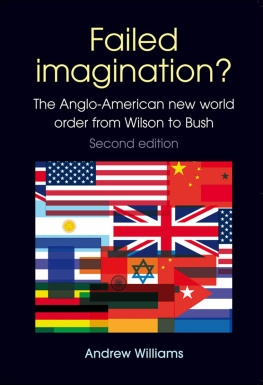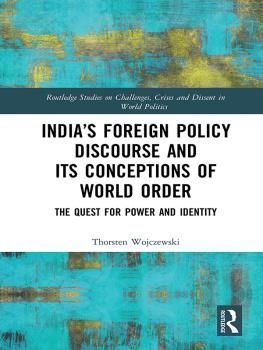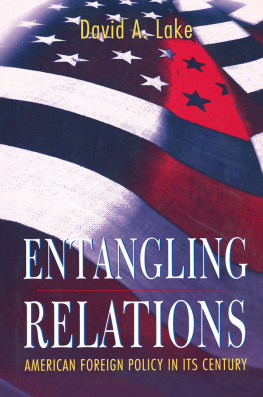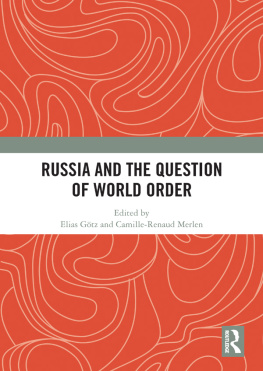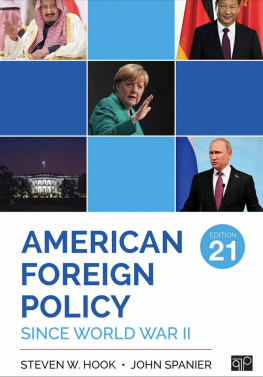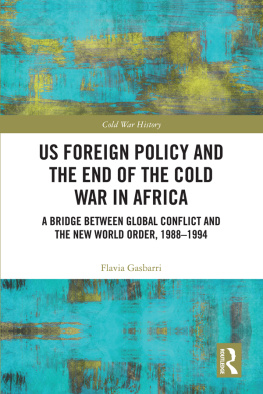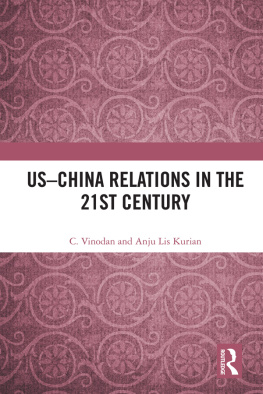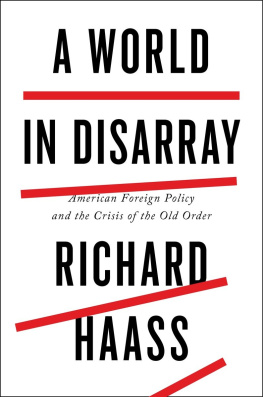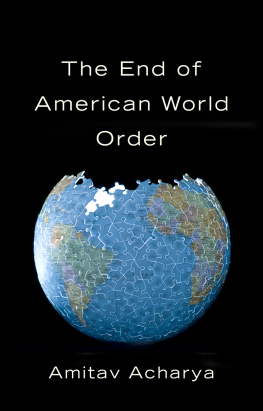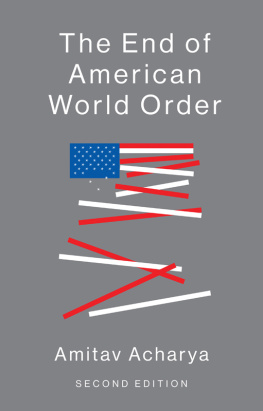Copyright Andrew Williams 1998, 2007
The right of Andrew Williams to be identified as the author of this work has been
asserted by him in accordance with the Copyright, Designs and Patents Act 1988.
First edition published 1998 by Manchester University Press
This edition published 2007 by Manchester University Press
Oxford Road, Manchester M13 9NR, UK
and Room 400, 175 Fifth Avenue, New York, NY 10010, USA
Distributed exclusively in the USA by
Palgrave, 175 Fifth Avenue, New York,
NY 10010, USA
Distributed exclusively in Canada by
UBC Press, University of British Columbia, 2029 West Mall,
Vancouver, BC, Canada V6T 1Z2
British Library Cataloguing-in-Publication Data
A catalogue record for this book is available from the British Library
Library of Congress Cataloging-in-Publication Data applied for
ISBN 978 0 7190 7462 2 paperback
This edition first published 2007
16 15 14 13 12 11 10 09 08 07 10 9 8 7 6 5 4 3 2 1
Typset in Sabon with Gill Sans display
by Koinonia, Manchester
Printed in Great Britain
by Bell & Bain Ltd, Glasgow
To my parents
Preface to the second edition
Since the first edition of this book there have been a number of important developments in the subject matter. For the analyst and historian of the idea and practice of the New World Order (NWO) the intervening eight years since 1998 might not be seen as so significant, as there has not been any major re-ordering of the world, certainly not on the scale of 191418 or 1939-45. But there have been some very significant events, notably the wars in Kosovo (1999), Afghanistan (2001) and Iraq (2003), the last two of these still ongoing at the time of writing and the first one only now hopefully being settled in an international conference. Certainly the biggest single event to influence my thinking is that of the attacks on New York of September 2001 (9/11), the consequences of which will be with us for the foreseeable future.
One of the big questions that this edition will try and answer is whether I now wish to change my overall judgement on the nature of the Anglo-American-inspired world order that has emerged over the period since about 1914. Should I, for example, have removed the interrogation mark from the title? When Sidney and Beatrice Webb published their monumentally flawed Soviet Communism: A New Civilisation? in 1935 they followed it up with another edition in 1942 which removed the final question mark. Certainly for much of liberal, and virtually all left-wing opinion in the West, the love-affair with the American proclaimed NWO of 1990 is now definitely over. I ended the first edition with an expression of cautious optimism about it. Should I now renege on that? The pages that follow will show that I have not given up on the United States yet, though I somewhat share the sense of despair that has engulfed the West over the dbcle in Iraq. It may be more in sorrow than in anger, but it does seem to me that the invasion of Iraq in 2003 was misjudged, ill-timed and for many of the wrong reasons. However, as I point out in the Conclusion, the logic behind it is not one that would have been alien to Presidents Wilson or Roosevelt or Prime Ministers Asquith and Churchill, though I suspect the timing and execution would have appalled them.
What is new about this edition can be found mainly in that new Conclusion - The Third American NWO: the Clinton and Bush presidencies, 1990-2006 which replaces the previous Conclusion. In this I have explored the way in which the NWO debate has been changed by 9/11, and the encouragement that this has given to what are known as the neoconservatives or neocons within the George W. Bush Administration (2001the present). This is to attempt to answer the single most compelling question that my students have asked me since 9/11: Is this more of the same old NWO agenda, or is it a new one? I cannot give any definitive answers about so recent a series of events but I believe that we can see both continuities and discontinuities in the neocon period. A second such question has been about what my own opinion was on these recent events. I have always eschewed breast beating, which tends to be ill-informed and partisan, but in this new chapter I will attempt to answer these questions.
I have not updated the historical chapters (15). However I would like to note a number of works that have helped improve my understanding of particular periods of history and that I often recommend to my students as emerging classics. On the Versailles Treaty and its aftermath there have been major books by Piers Brendon, Margaret Macmillan and Zara Steiner, This list is by no means exhaustive.
Finally, I have not changed the content of the thematic chapters (6-8) at all. I did contemplate doing so but realised that I, broadly speaking, still agree with my conclusions of 1998. I acknowledge that I was rather over-optimistic in places, as when I thought that Eritrea and Ethiopia might prove to be exemplars of democracy in Africa. I now do not think that to be the case. But hopefully the Conclusion that now follows these chapters will nuance the errors that I committed in those chapters. They demonstrate the dangers of making snap judgments about what are clearly parts of a slow-moving process of historical development. If I had attempted an analysis of the way the world was going in 1948 I would undoubtedly have changed it by 1956, but perhaps I would have been over-pessimistic on the latter date than has been warranted by subsequent events. It should also be said that the wealth of historical archival material that we now have for the Wilsonian and Rooseveltian eras does not exist for the period after 1990. Until we have the full benefit of the opening of archives any judgments on the period we are now living through must of necessity be partial, schematic and provisional.
Notes
Beatrice and Sidney Webb, Soviet Communism; A New Civilisation?, London, Longmans, 2 vols, 1935, 2nd edn 1942.
Piers Brendon, Dark Valley: A Panorama of the 1930s, London, Jonathan Cape, 2000; Margaret Macmillan, Peacemakers: The Paris Conference of 1919 and Its Attempt to End War, London, John Murray, 2001; Zara Steiner, The Lights that Failed: International History, 19191933, Oxford, Oxford University Press, 2005. There have also been articles that I have found useful on the period, including: K. Allerfeldt, Wilsonian Pragmatism? Woodrow Wilson, Japanese Immigration and the Paris Peace Conference, Diplomacy and Statecraft, vol. 15, no. 3, September, pp. 545572, 2004; Anthony Lentin, Lord Cunliffe, Lloyd George, Reparations and Reputations at the Paris Peace Conference, 1919, Diplomacy and Statecraft, March 1999.
Michael Beschloss, The Conquerors: Roosevelt, Truman and the Destruction of Hitlers Germany, 19411945, New York, Simon and Schuster, 2002; Mark Trachtenberg, A Constructed Peace: The Making of the European Settlement, 19451963

